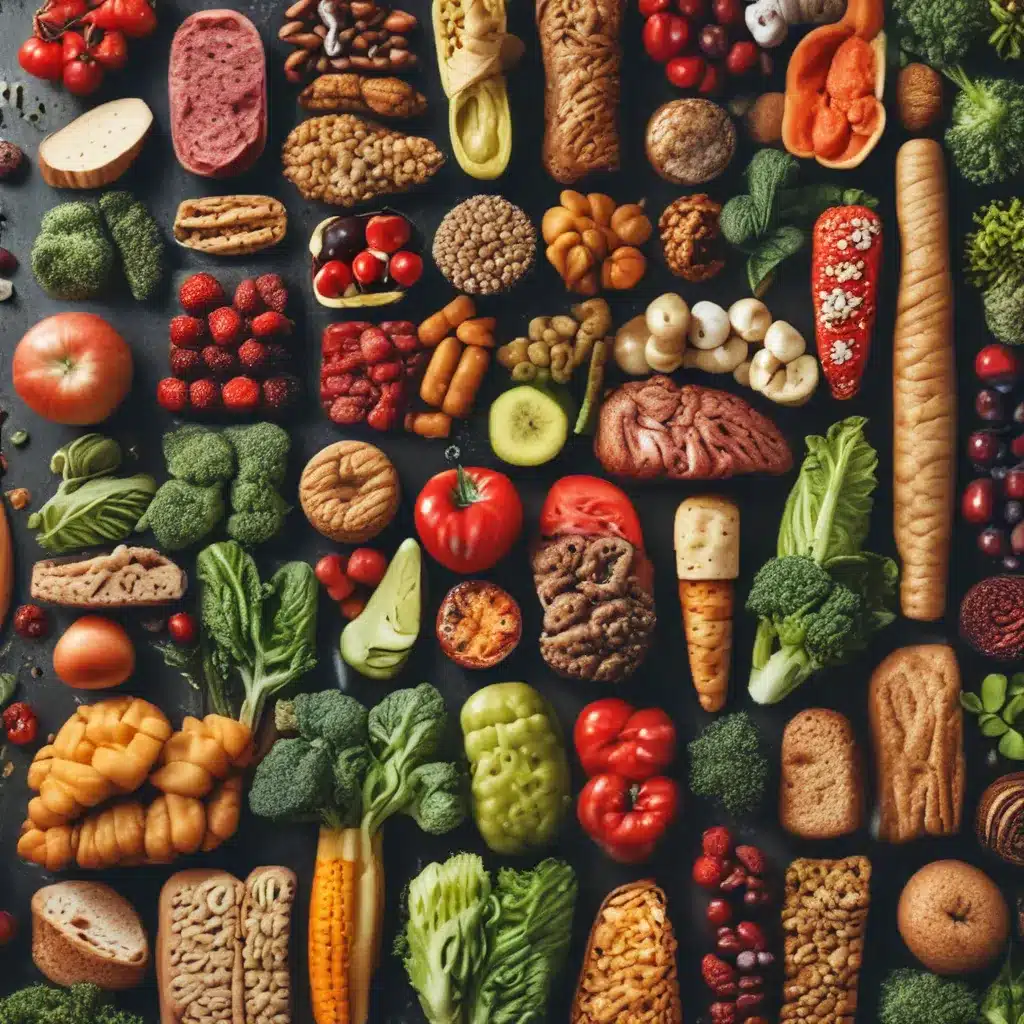
Nourishing Your Mind, Body, and Soul
As I sit here staring at the vibrant array of fresh produce from my Thornapple CSA box, I can’t help but feel a sense of wonder and gratitude. These are more than just fruits and vegetables – they’re the fruits of the labor of hardworking farmers, the embodiment of the land’s abundance, and the building blocks of a healthier, more fulfilling life.
You see, my relationship with food hasn’t always been this harmonious. Like many, I’ve had my fair share of ups and downs, from restrictive diets to emotionally-charged binge sessions. But through a journey of self-discovery and a deeper understanding of the complexities of our food experiences, I’ve learned that cultivating a healthy relationship with food is not only possible, but essential for our overall well-being.
Unpacking the Complexities of Our Food Relationships
Let’s face it – our relationship with food is far from simple. It’s entangled in a web of psychology, habits, and societal influences that have been woven into the fabric of our lives since childhood. As the team at Children’s Hospital New Orleans notes, “What influences how we eat? Several factors may influence our food decisions and feelings surrounding food. These can include, but are not limited to…”
- Our upbringing and the food-related messages we received growing up
- The emotional and social significance we ascribe to certain foods
- The societal pressures and diet culture norms we’ve internalized
- Our personal experiences with food, whether positive or negative
- Our physiological cues, such as hunger, fullness, and cravings
It’s a complex tapestry, to be sure. But understanding these factors is the first step in cultivating a healthier, more balanced relationship with food.
Redefining “Healthy” Relationships with Food
When it comes to our relationship with food, the notion of “healthy” can be quite subjective. As Healthline explains, “A good relationship with food involves having unconditional permission to eat the foods that make you feel good physically and mentally. No foods are off-limits, and you feel no guilt upon eating foods that are typically labeled ‘good’ or ‘bad.'”
In other words, a healthy relationship with food isn’t about adhering to a rigid set of rules or restrictions. It’s about finding a balance, honoring your body’s needs, and cultivating a sense of freedom and joy around the act of nourishing yourself.
This might look like:
- Listening to your hunger and fullness cues, rather than following a predetermined meal plan
- Enjoying a variety of foods, without labeling any as “good” or “bad”
- Practicing mindful eating, savoring each bite and recognizing the emotional and physiological effects of your food choices
- Accepting that there will be ups and downs, and approaching your relationship with food with patience, self-compassion, and a willingness to learn and grow
It’s a journey, to be sure, but one that can lead to a deeper appreciation for the role food plays in our lives.
Mindful Eating: The Key to Cultivating Connection
One of the most powerful tools in fostering a healthier relationship with food is the practice of mindful eating. As the team at American Sport and Fitness explains, mindful eating involves “eating in the moment and being fully present for the eating experience.” This means:
- Recognizing the difference between physical hunger and emotional or environmental triggers
- Paying attention to your body’s hunger and fullness cues, and stopping when you’re comfortably satisfied
- Savoring the appearance, aroma, and flavors of your food, rather than mindlessly consuming
- Expressing gratitude for the nourishment your food provides and the journey it took to reach your plate
- Minimizing distractions and creating a focused, calm environment for your meals
By cultivating this level of mindfulness and presence, you can start to uncover the deeper meanings and emotions behind your food choices, and build a more harmonious, intuitive relationship with nourishment.
Embracing the Highs and Lows of the Food Journey
It’s important to remember that a healthy relationship with food is not a destination, but an ever-evolving process. There will be ups and downs, moments of triumph and moments of struggle. And that’s okay.
As Healthline points out, “Your relationship with food may be transient. Sometimes you may eat with complete freedom and have no remorse for the foods you eat – this is great. But other times you may feel guilty after eating certain foods – this is not great, but normal.”
The key is to approach these fluctuations with kindness, patience, and a willingness to learn. Each experience, whether positive or negative, is an opportunity to deepen your understanding of your relationship with food and find new ways to nurture it.
And remember, you’re not alone on this journey. Reach out to trusted friends, family members, or even professional support like registered dietitians or therapists if you need guidance or a compassionate ear. Together, we can navigate the complexities of food and find the nourishment our bodies and souls crave.
Cultivating a Lifelong Partnership with Food
As I gaze once more at the vibrant produce in my Thornapple CSA box, I can’t help but feel a sense of wonder and possibility. These are not just ingredients to be consumed, but the building blocks of a healthier, more fulfilling life. By embracing a holistic, mindful approach to our relationship with food, we can unlock a world of nourishment, joy, and connection that transcends the mere act of eating.
So let’s embark on this journey together, my friends. Let’s explore the depths of our food experiences, embrace the highs and lows, and cultivate a partnership with nourishment that feeds our minds, bodies, and souls. After all, Thornapple CSA is here to support us every step of the way, providing the freshest, most sustainable produce to fuel our well-being.
Here’s to a lifetime of delicious discoveries, meaningful connections, and a healthier, happier relationship with food.



